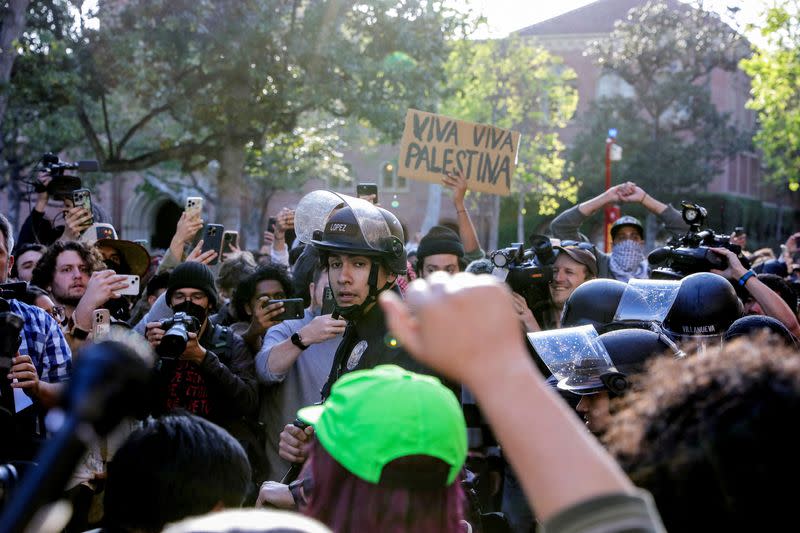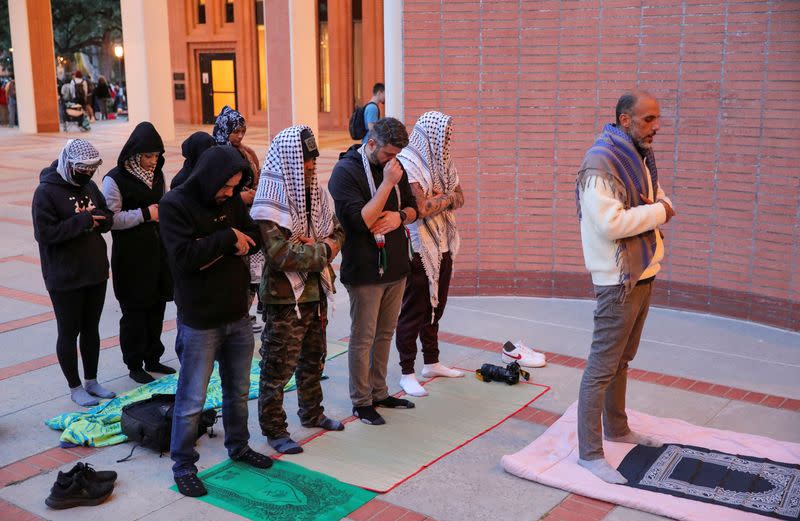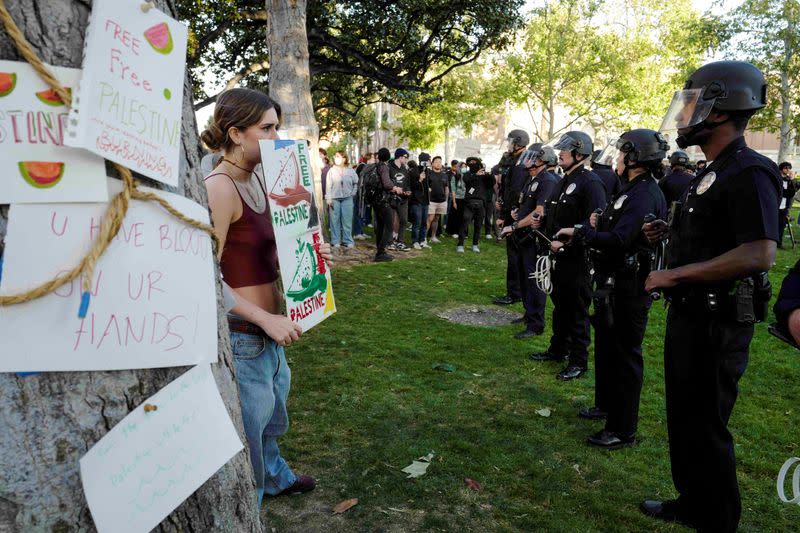USC cancels main commencement, citing safety measures
(Reuters) - The University of Southern California (USC) said on Thursday it has called off its main-stage graduation ceremony this year, one week after canceling the valedictorian speech by a Muslim student who said she was silenced by anti-Palestinian hatred.
New safety measures in place this year, such as additional screening procedures, will increase the processing time for guests "substantially," according to an update on USC's website.
"As a result, we will not be able to host the main stage ceremony that traditionally brings 65,000 students, families, and friends to our campus all at the same time," the update said.
The Israel-Gaza war has sparked tensions on U.S. college campuses and inspired a wave of students to erect protest encampments at universities across the country in recent days. Hundreds of protestors have been arrested, including more than 90 at USC on Wednesday.
Rights groups have viewed the arrests with concern as a free speech issue, while university officials have said the protests have been unauthorized.
USC's decision to abandon the main commencement ceremony came days after the university announced it had "decided it is best to release our outside speakers and honorees" from attending the commencement ceremony, following the outcry over the decision to cancel the valedictorian's speech.
USC Provost Andrew Guzman said in a statement last week that the decision to cancel the speech of the Muslim valedictorian, biomedical engineering major Asna Tabassum, was aimed at protecting campus security and "had nothing to do with free speech."
Guzman's statement did not refer to Tabassum by name, or specify what about her speech, background or political views had raised concerns, nor did it detail any particular threats.
Trojans for Israel, a USC-based group, and We Are Tov (Hebrew for "good"), a group advocating support for Israel and Jews in collegiate life, called for Tabassum's removal, saying she has previously espoused antisemitic views.
According to Tabassum, who described herself as a "first-generation South Asian-American Muslim," USC officials refused to share details of the university's security assessment.
(Reporting by Julia Harte; Editing by Bill Berkrot)




